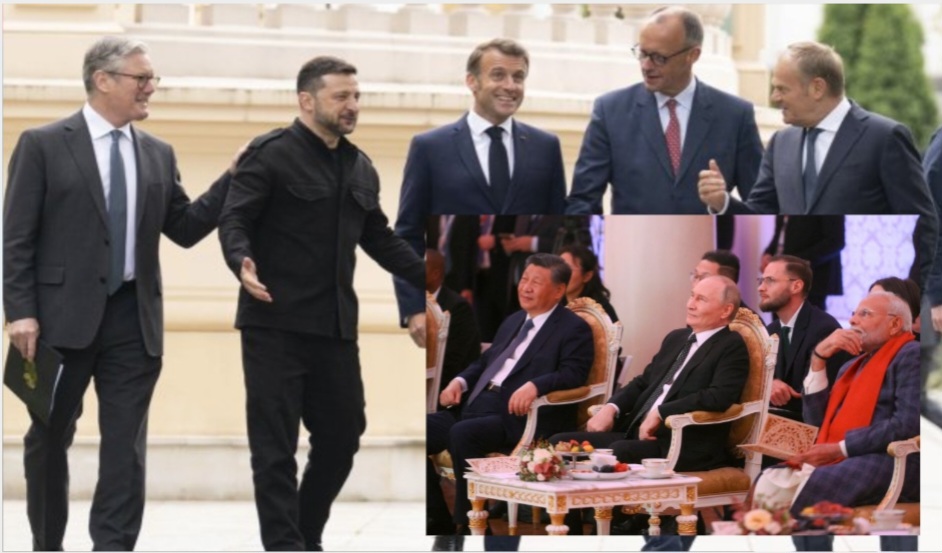The European Union has suffered economic losses exceeding €1 trillion due to severed ties with Russia, according to Russian Deputy Foreign Minister Aleksandr Grushko. Speaking to Russian media, Grushko claimed that the EU’s efforts to cut economic and energy cooperation with Moscow have backfired, weakening the bloc’s industrial competitiveness and straining its economy.
According to Grushko, trade between the EU and Russia dropped from €417 billion ($482 billion) in 2013 to €60 billion ($69 billion) in 2023 and is now “approaching zero.” He added that Europe’s economy has subsequently taken a hit and is losing competitiveness.
“The damage from cutting cooperation with Russia has already exceeded €1 trillion,” said Grushko. “Europe is now paying more for energy, and its economy is becoming less competitive.”
“Natural gas in Europe is four to five times more expensive than in the US, and electricity is two to three times higher,” he said. “That is the price Europe has to pay for ending all economic contacts with Russia.”
One of the most significant consequences, he argued, has been Europe’s rising energy costs. Gas prices are now 4 to 5 times higher, and electricity prices are 2 to 3 times more expensive than in the United States. Grushko also echoed President Vladimir Putin’s earlier claim that the EU has already lost €200 billion from refusing Russian gas alone.
Impact on EU countries
While the €1 trillion figure remains disputed, the fallout from cutting economic ties with Russia has had uneven effects across EU member states, especially in terms of energy dependency, industrial output, and inflation.
Germany
Heavily dependent on Russian pipeline gas prior to 2022. Faced surging energy prices and industrial slowdowns, especially in chemicals, metals, and automotive sectors.
GDP growth in 2023 was near-zero, with forecasts projecting slow recovery into 2025.
Introduced major subsidies to help industries transition to alternative energy sources.
France
Less dependent on Russian gas due to its nuclear-heavy energy mix, but affected indirectly through European market price spikes.
Inflation rose moderately in 2022–23, driven by energy costs and food prices. Attempted to take a leading role in pushing EU-wide energy diversification policies.
Italy
Among the hardest hit by natural gas price hikes due to its previous 30–40% reliance on Russian imports. Italy pivoted quickly to Algerian and Azerbaijani gas. Tourism and manufacturing slowed in 2023; GDP growth also dipped.
Poland and Baltic States (Estonia, Latvia, Lithuania)
Suffered more immediate economic disruption due to geographic and infrastructural ties with Russia.
Baltic states fully cut Russian gas by 2022 but faced sharp inflation spikes—in some cases over 15%. Increased military and energy spending strained national budgets.
Hungary and Slovakia
Among the most energy-vulnerable nations, reliant on Russian oil and gas via the Druzhba pipeline.
Negotiated exemptions and longer transition periods within EU sanctions packages.
Governments have warned of industrial job losses and urged for more EU-level financial assistance.
Strategic Shift and Recovery
The EU has responded to the energy crisis by accelerating diversification efforts through its REPowerEU initiative, which has successfully reduced Russian gas dependency from 45% in 2021 to around 15% by 2023. Overall gas demand has also dropped by nearly 18%.
Though some Eastern European economies experienced sharper slowdowns, large member states like Germany and France have absorbed the shocks more gradually. However how long they can sustain without Russian energy only time can tell. Diversifying will cost considerably and while the bigger economies can sustain such pressures for the smaller ones this can be a death knell, decimating their economies.








